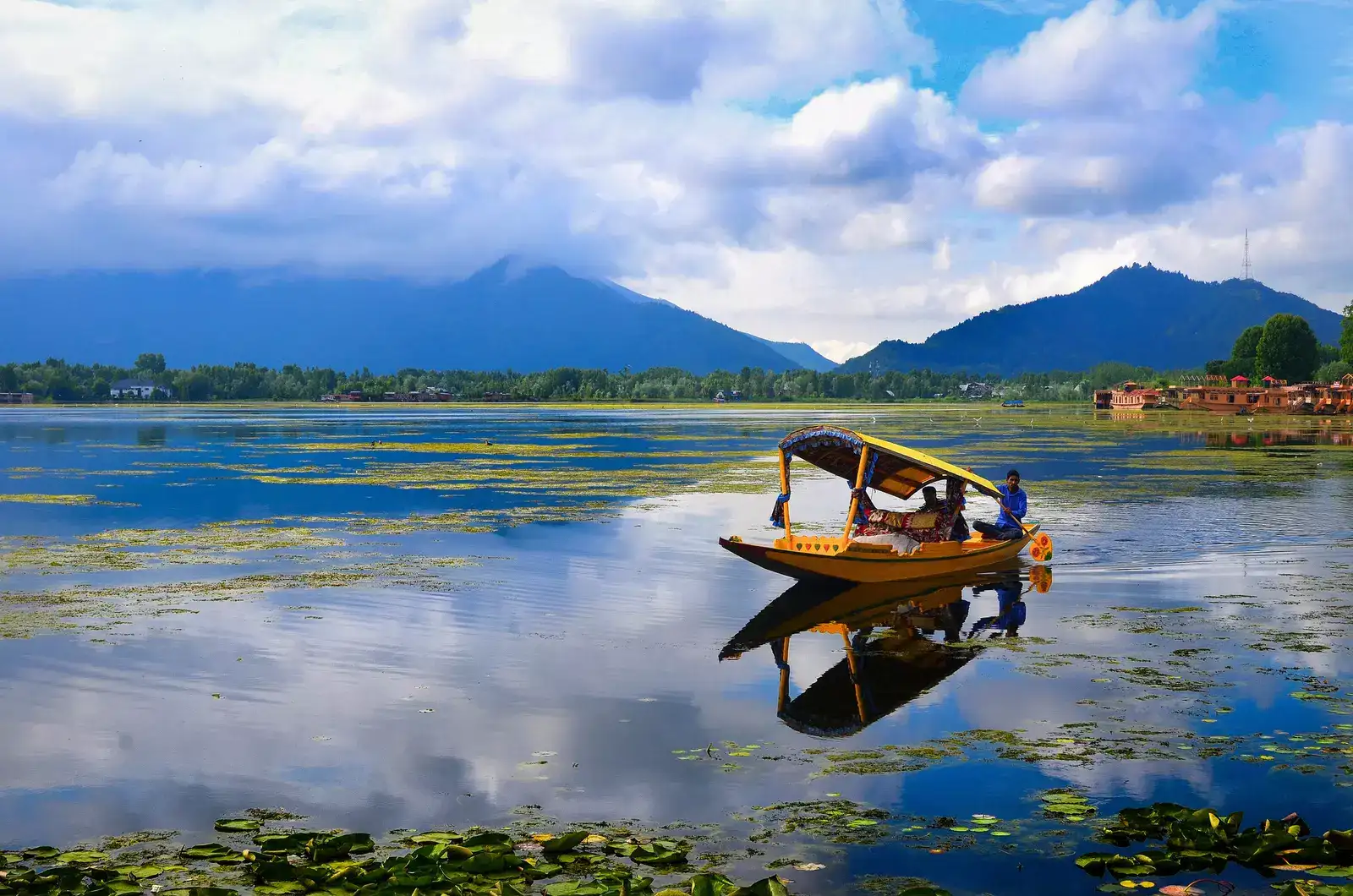Declining Tourism in Kashmir
The tourism industry in Kashmir is currently experiencing significant challenges due to escalating tensions that have instilled fear among potential visitors. Following a distressing incident that resulted in loss of life, the inflow of travelers has witnessed a sharp decline, leading local businesses, particularly in the hospitality sector, to adopt drastic measures such as offering substantial discounts to attract guests.
Discounts and Empty Accommodations
In response to the falling number of tourists, hotels and houseboats in Indian Kashmir are now providing discounts of up to 70 percent. This effort reflects the urgency with which the tourism sector is attempting to regain its footing. On the opposite side of the border in Pakistan, a popular tourist area has been sealed off due to the rising rhetoric between the two nations, further exacerbating the situation for local business owners who are heavily reliant on tourist activities.
A Region Dependent on Tourism
Kashmir is renowned for its breathtaking landscapes, including its snow-capped mountains, swift streams, and historic Mughal gardens. The local economy is heavily reliant on tourism, yet recent hostilities have created a significant downturn in the number of visitors. Over three million tourists flocked to India’s side of Kashmir last year alone, while approximately 1.5 million also visited the Pakistani side. However, recent events have cast a long shadow over what was once a burgeoning tourism market.
The Economic Impact on Local Businesses
For many local entrepreneurs, the vacation season typically brings a flourish of business; however, the recent turmoil has changed that narrative. Taxi drivers, shop owners, and those operating houseboats are reporting an acute drop in clientele, leading to a distressing financial situation. Tour operators are finding that cancellations are now the norm rather than the exception.
Stories from the Ground
Yaseen Tuman, a seasoned travel agency operator, has expressed the profound impact this situation has had on his business. Nearly all of his customers have canceled their bookings, leaving his houseboats vacant and his services unutilized. “Our houseboats were once bustling with guests, and now they sit empty,” Tuman shared, noting that he has no intention of slashing his prices, as he recognizes that tourism won’t rebound rapidly.
The Situation on the Ground
In places like Pir Chinasi, the local economy is suffering significantly. Roadside restaurants and hotels are sitting underutilized as fears of escalating violence loom over the area. Neelum Valley, a picturesque destination that was formerly filled with visitors, is now off-limits. Authorities have declared that the region will remain closed for the foreseeable future. “It’s going to hurt badly this season,” lamented Abrar Ahmad Butt, a spokesperson for hotel associations in the area.
Hope Amidst Uncertainty
Despite the prevailing atmosphere of fear, some individuals remain hopeful about the future. For example, a patron from Islamabad, who visited Pir Chinasi with his family, expressed a sense of security, stating, “This side is safe.” Yet, many others are not as optimistic, and the economic plight of the region continues to deepen.
The Call for Peace and Stability
Local shopkeepers are calling for peace, emphasizing the need for harmony in order to revive their businesses. “We should have peace in the country so that we may flourish,” remarked Musaddiq Hussain, who operates a small convenience store. Without stability in the region, both residents and businesses face a precarious future.
Taxi Drivers Feel the Heat
Taxi drivers, once busy with customers, are now left awaiting fares. Tanveer, a local taxi driver, reminisced about how packed the streets used to be. “Before the attack, it was hard to find a moment to breathe amidst the hustle; now, I wait all day for just one passenger.”
Exploration of Solutions with GetTransfer.com
In times of uncertainty, platforms like GetTransfer.com present an opportunity for travelers seeking safe and reliable transportation options. The platform allows users to select their preferred vehicle type, providing insight into make, model, and driver ratings before booking. Such transparency is invaluable, especially for those looking to travel in regions like Kashmir that are experiencing an influx of concerns.
Utilizing GetTransfer for a Smooth Journey
Travelers looking to explore destinations, even those facing challenges, can benefit from GetTransfer’s wide range of services. By offering substantial options tailored to travelers’ needs, the platform enhances the travel experience while ensuring safety and comfort. Whether in need of transportation to an airport or seeking to navigate through local scenic routes, GetTransfer is paving the way for personalized travel solutions.
Conclusione
While the situation in Kashmir presents significant short-term challenges for the tourism sector, it also emphasizes the necessity for flexibility, safety, and informed decision-making among travelers. GetTransfer.com is dedicated to support travelers by providing transparent options in a user-friendly environment, which is particularly beneficial when navigating regions that may feel uncertain.
In conclusion, understanding the effects of current events on tourism can aid in forging a path toward recovery. Though reviews and feedback can provide valuable insights, nothing exceeds the richness of personal experience. By using GetTransfer, travelers can hire cars with drivers from trusted partners at competitive prices. This platform enables one to make well-informed decisions while avoiding unnecessary expenses. Indulge in the convenience, affordability, and a plethora of transportation choices available through GetTransfer.com, and subsequently, GetTransfer.com.

 Il Kashmir affronta le sfide del turismo in mezzo alle crescenti tensioni">
Il Kashmir affronta le sfide del turismo in mezzo alle crescenti tensioni">

Commenti